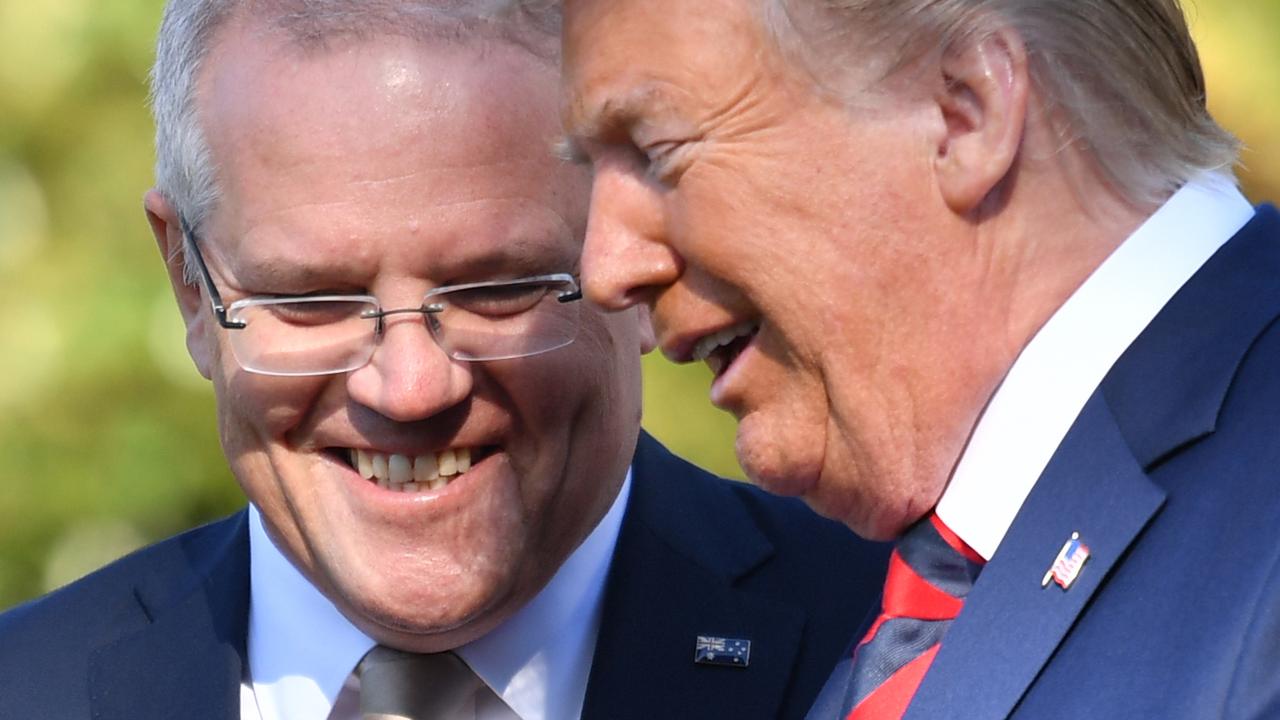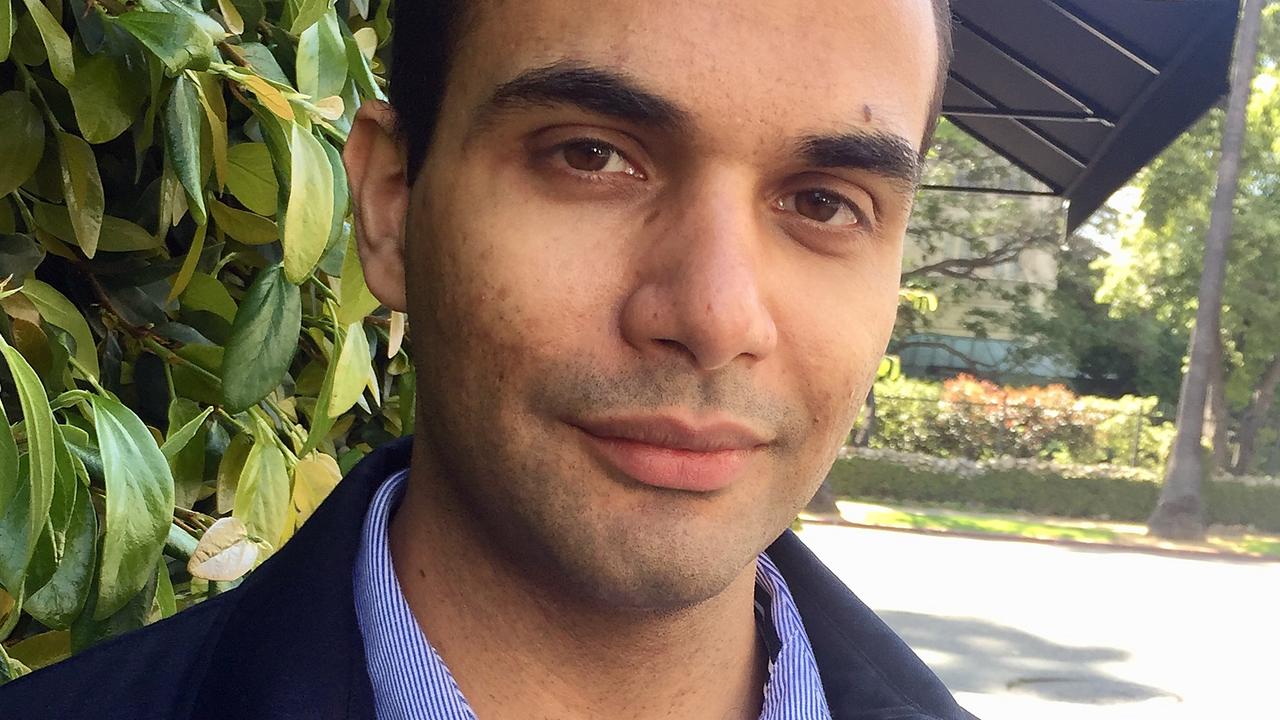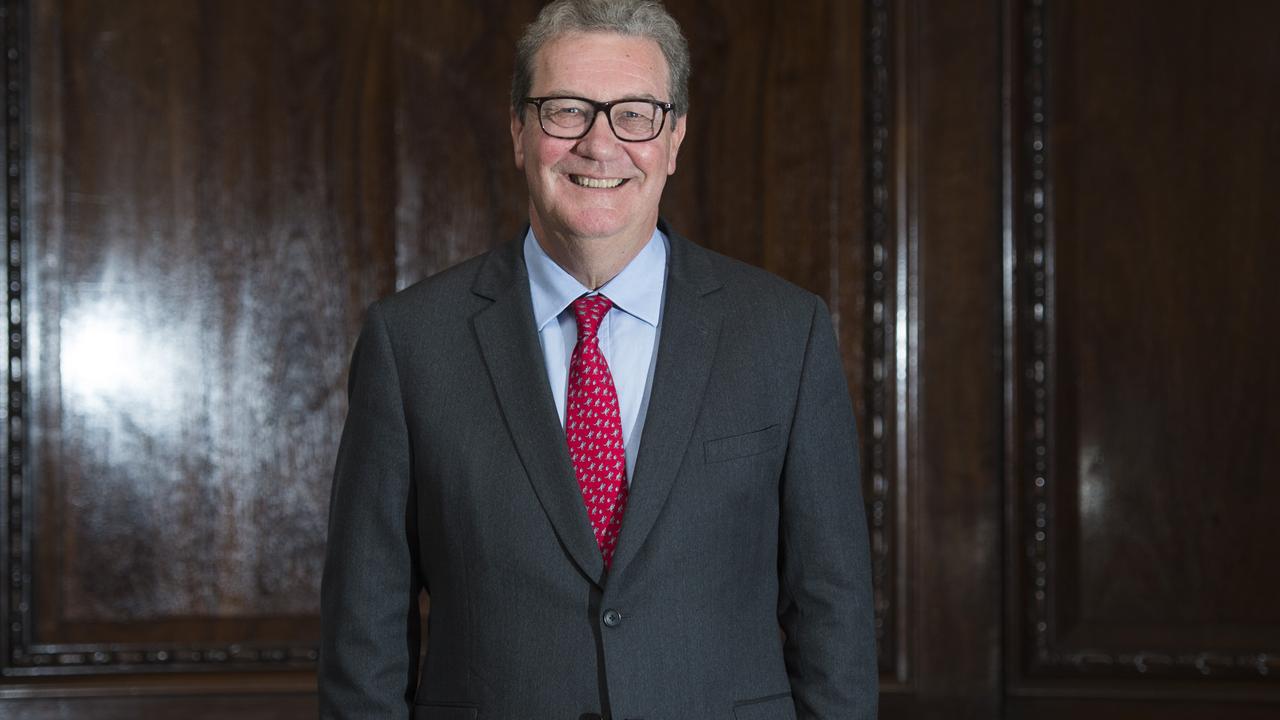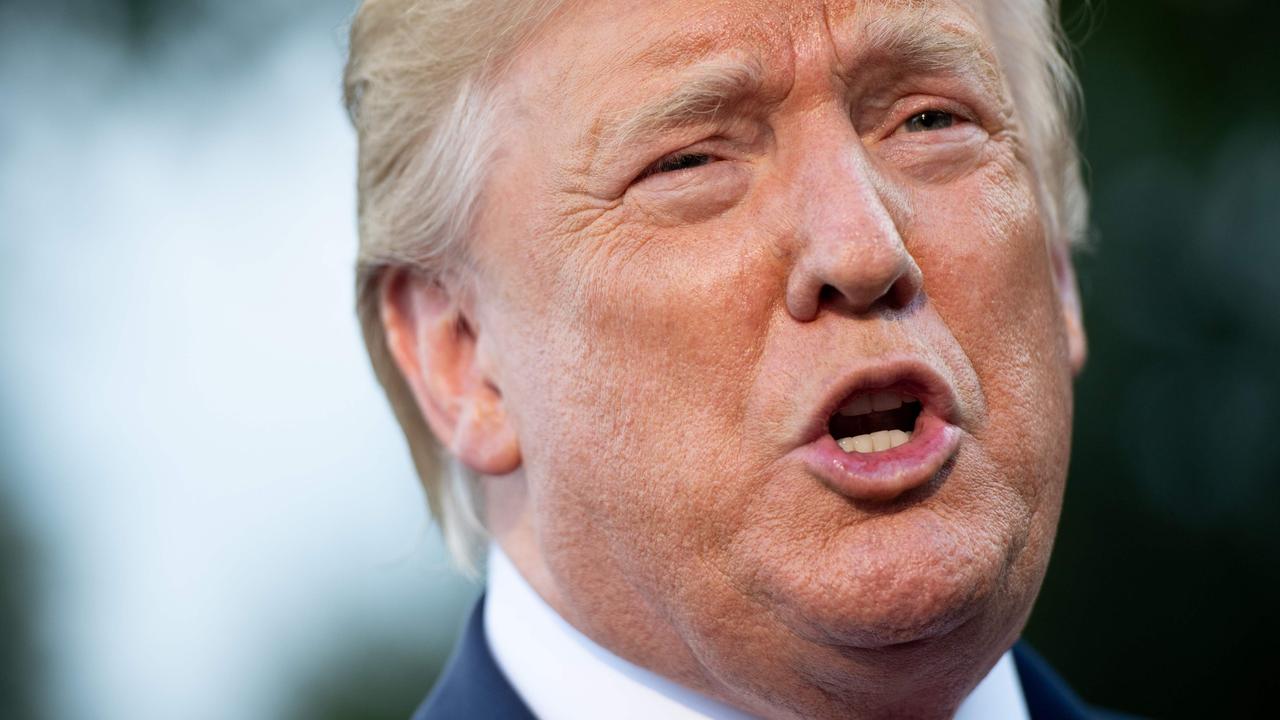The real takeaway from Donald Trump’s call with Scott Morrison
Two weeks. Two phone calls. Two completely different controversies. Looking at them together exposes Donald Trump’s obsession which could cost him his job.
ANALYSIS
Two weeks. Two phone calls. Two completely different controversies.
We must be careful not to conflate Donald Trump’s call with Prime Minister Scott Morrison, revealed by The New York Times today, and the one with Ukrainian President Volodymyr Zelensky, which dominated the news last week.
Yes, the two conversations were superficially similar.
During both, Mr Trump pressured foreign leaders to co-operate with a US Justice Department investigation into the origins of the FBI’s Russia probe.
But there was a significant differentiating factor between the two — Mr Trump’s request for Ukraine to launch its own investigation into his most likely opponent in next year’s presidential election, Joe Biden.
That was the catalyst for Democrats in Congress to start an official impeachment inquiry. It was an example of Mr Trump transparently abusing the powers of his office for personal political gain. It was, and still is, a full-blown, presidency-threatening scandal.
The request he made of Mr Morrison was not on the same level.
RELATED: Trump asked PM to help discredit Mueller investigation
RELATED: How Australia responded to Donald Trump’s pressure

Let’s calm ourselves, step back and look at the context here. What exactly was Mr Trump asking Mr Morrison to do?
The US President has long claimed he is the victim of a political “witch hunt”. To this day, he thinks the FBI’s investigation into Russian election interference, launched during the 2016 campaign, was really an attempt to sabotage him.
Mr Trump has repeatedly called for an investigation into the origins of that probe. Earlier this year, US Attorney-General William Barr finally obliged, appointing US Attorney John Durham to examine the FBI’s conduct and determine whether there had been any malfeasance.
Mr Trump’s critics suspect Mr Durham’s final report will be slanted to reach the conclusion his boss wants. His supporters think it will expose significant misconduct. At the moment, that is all pure speculation. We can’t judge the report until we see it.
In the meantime, it is not particularly unusual for the President of the United States to ask a foreign country to co-operate with a US government investigation. Nor is it unusual for Australia, a steadfast ally of the United States, to play along.
RELATED: Why the transcript shows Trump abused his office
RELATED: Most important sentence in the whistleblower report
You might be wondering why Australia is involved at all, though. And it’s when you dig into the details here that Mr Trump’s behaviour becomes more troubling.
Not for the first time, he is dabbling in bizarre conspiracy theories.
Back in May of 2016, Alexander Downer — a former Liberal Party leader and Australian foreign minister — met a Trump campaign adviser named George Papadopoulos at a bar in London.
Mr Papadopoulos told Mr Downer, Russia had dirt on Mr Trump’s opponent, Hillary Clinton.
This was before Wikileaks started to release hacked emails to damage her campaign, and long before America’s intelligence agencies concluded Russia was responsible.
Mr Downer, who was our high commissioner to the United Kingdom at the time, did his job as an Australian diplomat. He relayed what he had learned back to Canberra via a diplomatic cable.
That information was then passed on to US authorities, leading the FBI to launch its investigation into election interference.
RELATED: ‘I played him’: Papadopoulos taunts Australia
RELATED: One word exposes Donald Trump’s fatal flaw


Mr Papadopoulos has since spent a couple of weeks in jail for lying to the FBI.
Far from admitting fault, however, he has doubled, tripled and then quadrupled down on his claim that Mr Downer — a prominent political conservative — was a “Clinton errand boy”, “FBI spy” and part of a conspiracy to take down Mr Trump.
“Downer was a fool,” Mr Papdopoulos wrote today.
“I played him the entire meeting that I knew was designed to spy on my energy related work and then to ask a bizarre last minute question about Clinton-Russia. The transcripts will prove it all, folks. They exist.”
Alexander Downer, a left-wing spy. Yeah. OK.
It’s all rather far-fetched. But Mr Papadopoulos is not alone.
You can often find a window into Mr Trump’s thinking by watching his favourite TV host, Fox News’ Sean Hannity. Today Hannity suggested the FBI had “subcontracted spying” to Australia, Italy and Great Britain to circumvent American laws.
That, in essence, is what Mr Trump and Mr Barr want Australia to help investigate. Mr Barr has met with officials from Britain and Italy to discuss the probe as well — in the latter’s case, as recently as last week.
With that context, it is also worth looking back at Mr Trump’s phone call with Mr Zelensky — not the part referencing Mr Biden, which has hogged the headlines, but the other “favour” Mr Trump asked of the Ukrainian President.
RELATED: Trump pushes conspiracy theory in phone call
“I would like you to find out what happened with this whole situation with Ukraine, they say CrowdStrike … I guess you have one of your wealthy people … the server, they say Ukraine has it,” Mr Trump said.
“There are a lot of things that went on, the whole situation. I think you’re surrounding yourself with some of the same people. I would like to have the Attorney-General (Mr Barr) call you or your people and I would like you to get to the bottom of it.
“As you saw yesterday, that whole nonsense ended with a very poor performance by a man named Robert Mueller, an incompetent performance, but they say a lot of it started with Ukraine. Whatever you can do, it’s very important that you do it if that’s possible.”
This was the rough equivalent of Mr Trump’s request to Scott Morrison — he wanted Ukraine to co-operate with Mr Durham’s FBI probe — and if anything, it was even nuttier.
For some reason, the President believes that CrowdStrike, an American cybersecurity firm based in California, is owned by a “very rich Ukrainian”. The company’s founder Dmitri Alperovitch is actually an American citizen who was born in Russia.
CrowdStrike investigated the hack of the Democratic National Committee. Some of the more conspiratorial denizens of the internet — I look forward to welcoming them to my Twitter mentions later — think it helped frame Russia for the hack.
On top of that, Mr Trump reckons the hacked Democratic National Committee server is in Ukraine. Why? Not sure about that part. He just does.

So what we are left with here is the deeply weird spectacle of a US President asking foreign governments to help him discredit his own country’s intelligence agencies, based on wild conspiracy theories, with nary a shred of evidence.
He wants Australia to examine whether Mr Downer was secretly a spy, when all available information indicates he was just a diplomat doing his job. And he wants Ukraine to examine its role in the DNC hack, when it didn’t even have one.
The most baffling part is this — Mr Trump is already in the clear.
Special counsel Robert Mueller delivered his final report earlier this year. He did not uncover proof of collusion between Mr Trump and Russia, and declined to make a call one way or the other on obstruction of justice, citing Justice Department policy that a sitting president could not be indicted.
Why is Mr Trump still going to such lengths to discredit an investigation that can no longer hurt him? Why bother bringing foreign countries into his effort, knowing it could cause him political damage?
The only answer, I suppose, is that after years of shouting “witch-hunt”, “hoax” and “presidential harassment”, he is desperate to be vindicated.
The proposition he is asking us to believe is absurd — that America’s intelligence agencies conspired to stop his election, yet for some incomprehensible reason, waited until after that election to make their suspicions publicly known.
It doesn’t make any sense. It is a bizarre obsession rooted in conspiratorial thinking. But these phone calls with foreign leaders show Mr Trump is never going to drop it.




